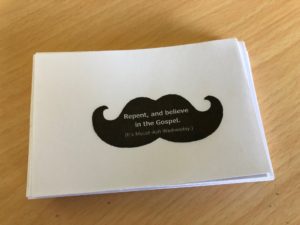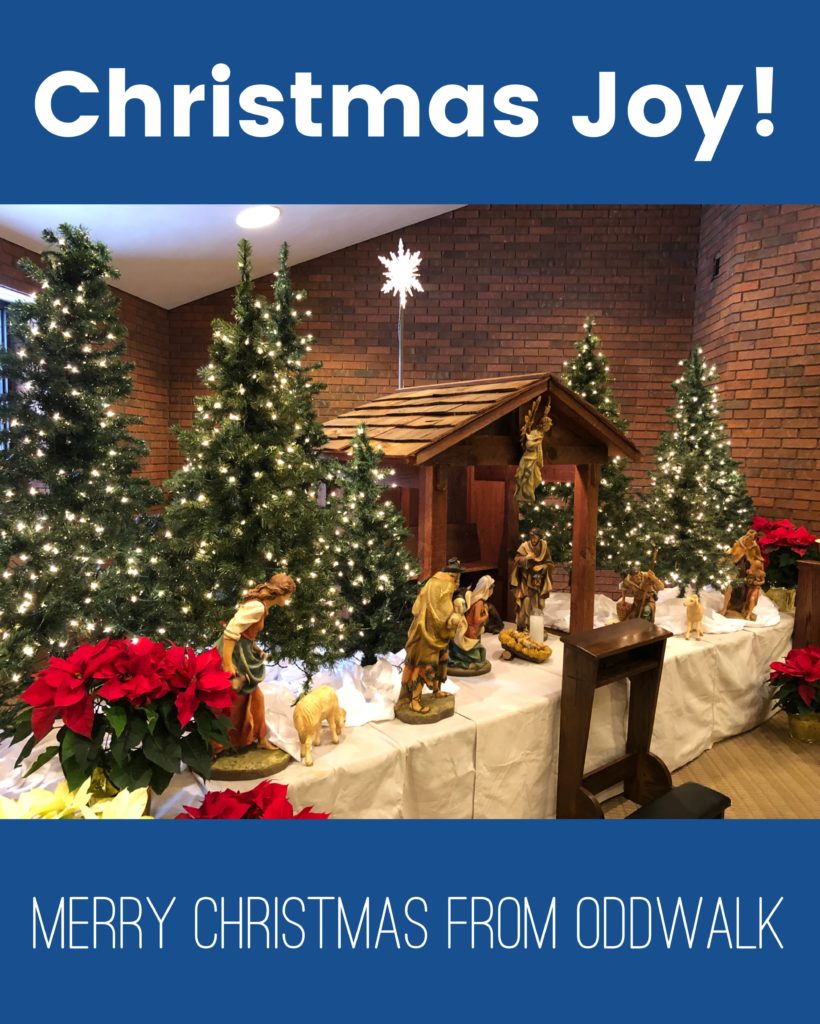This past February 14, Lent began. All of the sudden, in churches all over the world, everything was much different than it had been on February 13. The transformation included banners, the scriptures proclaimed at Mass, the gospel acclamation, the music, the vestments worn by the deacons and priests, etc. All of it was different.…
Category: liturgy
bible, catholicism, JesusJusticeJoy, Joy, lent, liturgy, ministry, music, prayer, reflection, scripture
Answer Me
 Each year, at the parish where I (Orin) direct music, the school children attend Mass on what is nicknamed “Spy Wednesday,” Wednesday of Holy Week, because of how Judas and his role in the passion is featured in the Gospel passage of the day. It is in fact the last Mass before the Thursday liturgies of Triduum: Chrism Mass and/or the Mass of the Lord’s Supper.
Each year, at the parish where I (Orin) direct music, the school children attend Mass on what is nicknamed “Spy Wednesday,” Wednesday of Holy Week, because of how Judas and his role in the passion is featured in the Gospel passage of the day. It is in fact the last Mass before the Thursday liturgies of Triduum: Chrism Mass and/or the Mass of the Lord’s Supper.
I think, though, that more than the other readings of the day, and more than other psalms, the psalm of the day, part of Psalm 69, is one of my favorites. Here it is, in it’s entirety, as the responsorial psalm from Wednesday’s mass:
R. (14c) Lord, in your great love, answer me.
For your sake I bear insult,
and shame covers my face.
I have become an outcast to my brothers,
a stranger to my mother’s sons,
because zeal for your house consumes me,
and the insults of those who blaspheme you fall upon me.R. Lord, in your great love, answer me.
Insult has broken my heart, and I am weak,
I looked for sympathy, but there was none;
for consolers, not one could I find.
Rather they put gall in my food,
and in my thirst they gave me vinegar to drink.R. Lord, in your great love, answer me.
I will praise the name of God in song,
and I will glorify him with thanksgiving:
“See, you lowly ones, and be glad;
you who seek God, may your hearts revive!
For the LORD hears the poor,
and his own who are in bonds he spurns not.”R. Lord, in your great love, answer me.
I think what appeals to me about this psalm are two separate yet connected ideas: Our faith as a journey, and prayers of lament.
I think, sometimes, our faith experience as we live it today has lost a sense of lament: a profound expression of sadness and grief. Surely there is some of that sometimes, particularly when dealing with a death of a friend or relative. But, anecdotally, in other instances when one might turn to lament, what I see instead are things like anger, revenge, or simply “fixing” the cause of the lament in convenient but perhaps not the most meaningful of ways. What does that mean? It means instead of turning our sorrow to God, we attempt to alleviate it on our own: by expressing other emotions, by taking actions that are typically sinful and hurtful to others and ourselves, or by engaging in more of a culture which oftentimes seeks instant gratification. (In some ways, we’ve lost definitions and distinctions in and around words and feelings like “love,” “need,” “want,” “desire,” and so on, but that’s probably material for another post someday.)
Lament, even anger at God, is an okay place to be and an okay way to pray. God expects nothing less from our human experiences. God lived those emotions as Jesus Christ, fully God and fully human. Go to God with sorrow, lament, and even anger. Let God speak to you about those things. Let God soothe and console, and even fill the empty places in your heart.
The Psalms of lament, which include Psalm 69 above, always have a moment where the voice of the psalm turns the corner. Note the last verse, which has jumped ahead in the psalm a fair amount: I will praise the name of God… the Lord hears the poor…” God hears us, and our lament, through God, can become joy. God is in the lament, knows the lament, and always wants for us, ultimately, joy. It is up to us, though, in those times, to remember God is with us, and turn to God with our needs.
May Holy Week blessings be with one and all. Orin
announcements, catholicism, christmas, good news, Jesus, JesusJusticeJoy, LCF, lent, liturgy, Mary, merchandise, ministry, music, prayer, quote, reflection, WLP
To, or Through?
Hello all, Orin here. I realized as I sat down to craft this week’s Jesus-Justice-Joy post that Shannon and I have been remiss in letting you know a bit of exciting news. In addition to the book that will be coming out this July sometime, we’ve also both been writing new music, and incorporating some…
catholicism, good news, JesusJusticeJoy, Joy, lent, liturgy, ministry, oddwalkia, prayer, quote, reflection
Moust-Ash Wednesday
 A number of our Jesus-Justice-Joy weekly reflections lately have focused on Joy, and this one will too.
A number of our Jesus-Justice-Joy weekly reflections lately have focused on Joy, and this one will too.
“But,” you say, “Orin! How can that be? Lent begins this week. Don’t you know that Lent is all sad and repentant and morose and sackcloth and ashes and other depressing things?”
Well, I know it’s Lent, yes, but Lent need not be those things, at least not overly so. Indeed we ought to be repentant, and sad for our sinfulness. And, further, knowing our sinfulness led Jesus to his suffering and death on the cross, well, sure, we can be sad and even grieve these things.
But to do so without also knowing there’s more to the story is to, in a sense, make an idol out of only one tiny facet of our faith. We must always take our faith as a whole – it’s not like during Advent we forget for four weeks that Jesus did actually come to ransom captive Israel. It’s not like during Lent we should remember only the repentance, the suffering, the death. We should also, while celebrating these things, remember that there is new life that arises from these very same things – there is joy and even more celebrating to come.
Did you catch, there, that we “celebrate,” even in Lent? It’s true. There’s an expression, in Latin, that goes:
Lex orandi, lex credendi
Which is to say, in English: “The law of prayer is the law of belief.” Even more simply, we pray what we believe, and we believe what we pray. With that in mind, let’s turn to a prayer that we will hear and pray together very soon:
Each year you give us this joyful season when we prepare to celebrate the paschal mystery with mind and heart renewed. You give us a spirit of loving reverence for you, our Father, and of willing service to our neighbor. As we recall the great events that gave us new life in Christ, you bring the image of your Son to perfection within us. (Preface for the 1st Sunday of Lent)
We pray that lent is a “joyful season” in which we prepare to “celebrate” the paschal mystery – Christ’s redemptive suffering, death, and resurrection. And, as we ponder these things, we become more Christ-like through the power of God perfecting that image within us.
Wow.
So, I (Orin) have attached to this post an image. This Wednesday, after our parish school’s 8th graders lead music ministry at one of our morning masses, I’ll be giving them each one of these – hopefully to remind them that Lent, which we should dive into whole-heartedly and intensely, is only one part of a broader story, a broader mystery, which as a whole tells us where we’ve come from, who we are now and who we should strive to be, and the future that awaits us all if we help each other grow in faith and holiness.
Blessings on our Lenten journeys this year, one and all. Orin
announcements, bible, catholicism, friends, GIA, iTunes, Jesus, JesusJusticeJoy, LCF, liturgy, ministry, music, NCCYM, OCP, odd, reflection, saints, scripture, technology, WLP
The Liturgical Composers Forum: Pointing to Jesus
Starting tonight, Orin (today’s blogger) will again be attending the 20th annual Liturgical Composers Forum in suburban St. Louis. This gathering was begun by Fr. John Foley, SJ two decades ago, at the time a program of the now largely non-existent Center for Liturgy at SLU. These few days bring together some of the most familiar…
catholicism, family, JesusJusticeJoy, Justice, liturgy, ministry, oddwalkia, prayer, quote, reflection, scripture
Here I Am Lord
It’s my (Orin’s) turn again at Any Given Sunday Project to write a Sunday Scripture reflection, this one for this coming Sunday, January 14. The psalm of the weekend holds a special place in my heart, and is central to a story often told at Oddwalk appearances. Here’s an abbreviated version of what you may…
amazing, catholicism, christmas, good news, JesusJusticeJoy, Joy, liturgy, ministry, oddwalkia, prayer
Christmas Joy!
advent, bible, christmas, good news, JesusJusticeJoy, Joy, liturgy
Rejoice! We Know How This Ends.
Last week, it was Shannon’s turn to offer a few thoughts on the Sunday Mass readings for Any Given Sunday. We offer them to you today as this week’s Jesus-Justice-Joy reflection… I work in a parish in Fulton, MO. This past Sunday, our high school students met for a faith formation class. During the session,…

